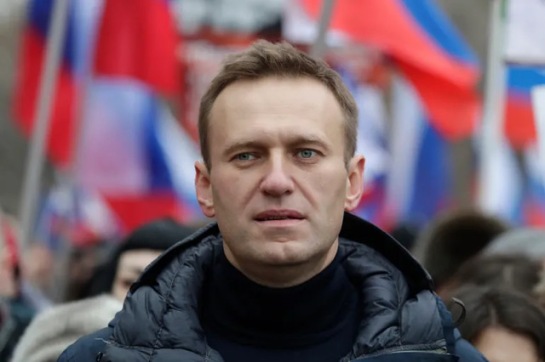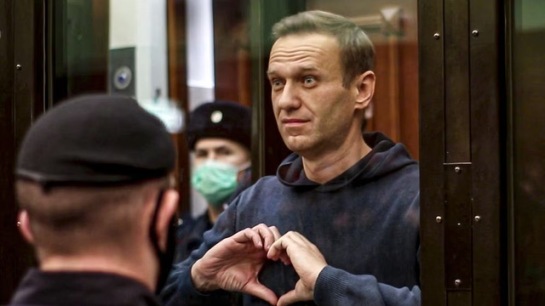Grieving Alexei Navalny
Grieving Alexei Navalny
2 March 2024
Yesterday, Alexei Navalny was laid to rest by his parents and thousands of friends and supporters in the neighbourhood he used to live with his family in Moscow.
I haven’t been able to write anything, or say very much, since Navalny was killed on 16 February. The familiar fog of grief descended, making all but the automatic motions of everyday difficult.
For our little family, Alexei Navalny was a beacon of hope. For countless Russians, both at home and abroad, he embodied the promise of a better future.
One of those Russians was my husband. He’s been living outside of Russia for 24 years now, watching the slow death of Russia’s short-lived experiment with democracy and freedom. He’s seen his peers, and those dear to him, succumb to nearly 25 years of propaganda and indoctrination that even Orwell might have have been surprised by. And finally on 24 February 2022, he watched in horror as his country invaded Ukraine, descending to full blown pariah state.
It’s been very difficult.
But one thing we have been able to draw inspiration from has been Alexei Navalny’s unwavering courage, resolute bravery, and laser-sharp focus in challenging Vladimir Putin and the Kremlin’s regime. Navalny has been many things, a lawyer, anti-corruption activist, politician, opposition leader and most recently, a political prisoner. From 2008, he was engaged in a continuous campaign to expose the corruption at the heart of the Russian government, tirelessly fighting for a fairer future. He risked his life a multitude of times to stand up to the Kremlin’s oppression. We have always feared he would be killed for it. And finally, on 16 February 2024, he was.
There have been many brave opponents to Putin over the past quarter century, including Sergei Yushenkov (assassinated in 2003), Anna Politkovskaya and Aleksandr Litvinenko (both assassinated in 2006), Natalya Estemirova (assassinated in 2009), Sergei Magnitsky (died in prison in 2009), and Boris Nemtsov (assassinated in 2015). Navalny’s brand of opposition was unique. He was able to mobilise vast numbers of supporters through innovative strategies that resonated across Russia and beyond.
He adeptly used the internet and social media to reach a wide audience. In 2011, he founded the the Anti-Corruption Foundation (FBK) and their videos highlighting the graft and dishonesty of high-ranking officials garnered millions of views, raising public awareness about systemic corruption. Iconic investigations like He Is Not Dimon to You (2017) exposed corruption on a grand scale, revealing Dmitry Medvedev’s vast empire of luxury properties, yachts, and vineyards. This investigation, and many others, lead to widespread protests across Russia.
Perhaps the most memorable of all was Navalny’s investigation into his own attempted murder, where he tricked the FSB assassins who attempted to kill him with Novichok to admit to their own crime, a scene which is at the centre of the Academy Award winning documentary of Navalny’s life.
When Navalny was poisoned in August 2020, at the height of the pandemic, me and my husband spent days gripped by acute anxiety as he fought for his life, first in Omsk and then in Berlin. We went through the early stages of grieving. His unexpected survival was utterly joyous and one of the things I used as inspiration to get through the pandemic.
We went through another wave of torment when he was arrested in January 2021. And yet every week since then, he’s somehow managed to send out poetic, funny, defiant, angry and inspiring missives from jail, continuing to sow seeds of hope, that one day, somehow, the people of Russia would rise up.
Navalny wasn’t perfect. His early dalliance with nationalism and use of offensive language toward Central Asian migrants are ugly chapters of his past, for which he later expressed remorse. And like many Russians, he never seemed to fully grasp the unease that people who live in the former Soviet republics have about unchecked Russian Imperialism.
Yet despite these flaws, I will remember him as someone of immense principle and moral clarity; someone whose courage will serve as a powerful example for generations to come.
Courage, like laughter, is contagious. And Navalny had seemingly unending quantities of both. Armed with his trademark wit, he inspired hundreds of thousands of supporters to speak truth to power and to believe in a brighter future.
To honour his memory, I’ll try and believe in that brighter future too.

